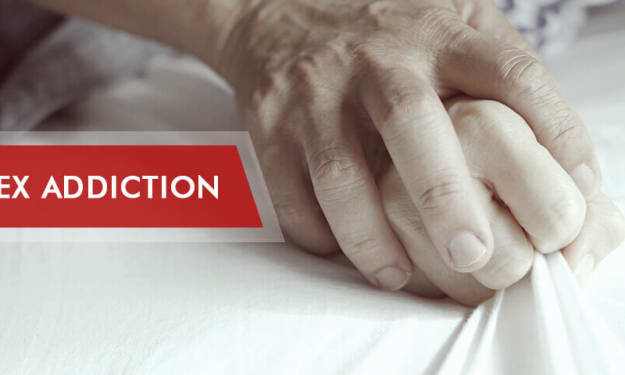Content warning
This story may contain sensitive material or discuss topics that some readers may find distressing. Reader discretion is advised. The views and opinions expressed in this story are those of the author and do not necessarily reflect the official policy or position of Vocal.
Heartache and Heart Problems: The Surprising Relationship
The Study of Heart Problem From the University of Arizona

The University of Arizona researched the influence of grief on heart function and discovered that intense grieving might induce a significant increase in blood pressure. According to the data, grieving may be a risk factor for cardiac events. Losing loved ones may have a significant impact on both psychological and physical health.
The idea of "dying of a broken heart," which can happen following the loss of a loved one, was the motivation for the research, said Mary-Frances O'Connor, senior author of the study and a Arizona associate professor of psychology who specializes in grief. The study, published in the journal Psychosomatic Medicine, demonstrates an association between grief severity and elevated systolic blood pressure response.
The study included 59 participants that had lost a close loved one in the past year. increased risk of mortality after the death of a loved one has long been documented in epidemiological studies. The study by O'Connor and her colleagues looked at blood pressure as a possible contributing factor.
"We were looking for a way to test the cardiovascular effects of grief during that vulnerable time in the first year after the loss," said lead study author Roman, who was a doctoral student at Arizona when the study was conducted and is now the director of research projects in spiritual health at Emory University Woodruff Health Sciences Center.
Study participants were interviewed and asked to focus on feelings of separation and attachment through a process researchers call "grief recall." The researchers talked to each participant for 10 minutes and asked them to share a moment when they felt very alone after the death of their loved one. The researchers then measured the study participants' blood pressure.
This is sort of like an emotional stress test," O'Connor said that "When you go to a cardiologist, they don't just measure your blood pressure. They also sometimes do a stress test, like a treadmill, and measure your blood pressure.
After grief recall, participants' systolic blood pressure - which is the pressure that the heart exerts on the arteries while beating - increased. From the baseline level, systolic blood pressure climbed by an average of 21.1 millimeters of mercury - the unit used to measure blood pressure. That is approximately as much of an increase as would be expected during moderate exercise.
Among the 59 participants, those who showed the highest level of grief symptoms experienced the greatest increase in blood pressure during the grief recall.
"This means that it isn't just the death of a loved one that impacts the heart, but our emotional response to loss that is affecting our heart," O'Connor said. The study's findings are helpful for clinicians, as they show that people who are experiencing a bereavement are at higher risk for hypertension and other heart-related problems, O'Connor said.
"It's important for psychologists and therapists to encourage grieving clients to get their regular medical checkups. Often, when we've been caring for a loved one who's dying, we neglect our own health care," she said.
In her Grief, Loss, and Social Stress Lab in the Department of Psychology, O'Connor studies an intervention called "progressive muscle relaxation." It teaches grieving people to tighten and then fully relax the major muscle groups in their bodies.
This kind of body-based intervention can be helpful for people in terms of their grief and curbing their stress levels, O'Connor said. "I continue to look for interventions that will help address the physical and medical side of grieving, in addition to the emotional side," she said.
About the Creator
Enjoyed the story? Support the Creator.
Subscribe for free to receive all their stories in your feed. You could also pledge your support or give them a one-off tip, letting them know you appreciate their work.





Comments
There are no comments for this story
Be the first to respond and start the conversation.